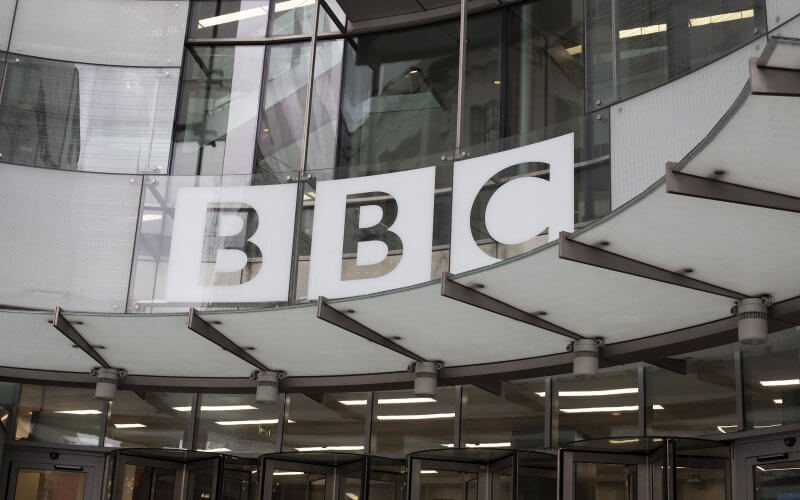Over the weekend, new reports disclosed that the British Broadcasting Corporation (BBC) relied on an anti-Israel journalist funded by the Islamic Republic of Iran as a significant informant in its coverage of the Gaza conflict.
The BBC conducted an analysis of video footage and eyewitness testimonies regarding the recent stampedes involving an aid convoy in Gaza, resulting in the reported deaths of over 100 Palestinians. According to the report, Mahmoud Awadeyah, identified as a journalist present at the scene, provided an eyewitness account. However, it has since been revealed that Awadeyah is affiliated with Tasnim News Agency, an Iranian media outlet with connections to the Islamic Revolutionary Guard Corps (IRGC), a State Dept.-designated terrorist organization committed to the destruction of the Israeli state.
David Collier, an anti-Semitism researcher, was the first to reveal Awadeyah's social media feed. It contains posts that seem to applaud a terrorist attack in January 2023, resulting in the deaths of seven Israelis. Additionally, Awadeyah posted a photo of himself dining at a restaurant with Khalil Al Bahtini, the head of the paramilitary organization Islamic Jihad.
"The BBC anti-Israel drumbeat helps to spread anti-Semitism, and it is all funded by the taxpayer. This is absolutely disgraceful," Cohen wrote in a blog post." Cohen cautioned that the BBC's coverage of the Verify story represented more than just a significant lapse in journalistic standards for the network. He emphasized that "the stakes are much higher than that."
On social media, the activist expressed approval for violence against Israelis and shared images of himself dining alongside militant leaders.
Danny Cohen, the ex-director of BBC Television, criticized the network for neglecting fundamental journalistic practices by not verifying one of its primary sources. In an article for The Telegraph, he stated that the British news agency "has a habit of accepting at face value what they are told by people who present as Palestinian civilians or officials from civic authorities and either don't understand or don't care that they are representatives of terrorist organizations."
"Our publicly-funded broadcaster seems to believe that 'balance' and objectivity means treating a genocidal terrorist group and a democratically-elected government in the same way," Cohen wrote in The Telegraph. Cohen asserted that the BBC's failure to confirm the source indicated a deeper bias in their reporting on the conflict.
"It also appears evermore the case that stories BBC reporters receive from Palestinian sources align with their negative assumptions about Israel, meaning that the corporation's journalists don't challenge or robustly investigate accounts that come from highly flawed and disreputable sources," he added. The report was released by BBC Verify, a division of BBC News dedicated to investigating and verifying information to combat misinformation and fake news.
The BBC has been accused multiple times of showing bias in its reporting on the conflict following Hamas attacks on Israel starting from Oct. 7. Initially, the BBC refrained from labeling Hamas as a terrorist group, which led to calls from Israel to restrict the broadcaster's access. Additionally, there have been complaints from pro-Hamas groups and individuals about the BBC's coverage being skewed in favor of Israel. Despite these accusations, the BBC has denied any bias, stating that it carefully considers all aspects of its reporting.
A spokesperson from the BBC affirmed the organization's commitment to its journalistic integrity and refuted the accusations presented in the article. They said that because the BBC does not have direct access to Gaza, they rely on numerous sources, including eyewitness accounts and official statements, which are cross-referenced with IDF footage. The spokesperson highlighted that expressing opinions on social media does not invalidate someone's potential as an eyewitness. Additionally, they rejected claims of bias and pointed out the BBC's extensive coverage, such as their reporting on the Supernova festival massacre through BBC Verify accounts.
Related Story: BBC Employees Reportedly Instructed Not to Attend London March Against Antisemitism









